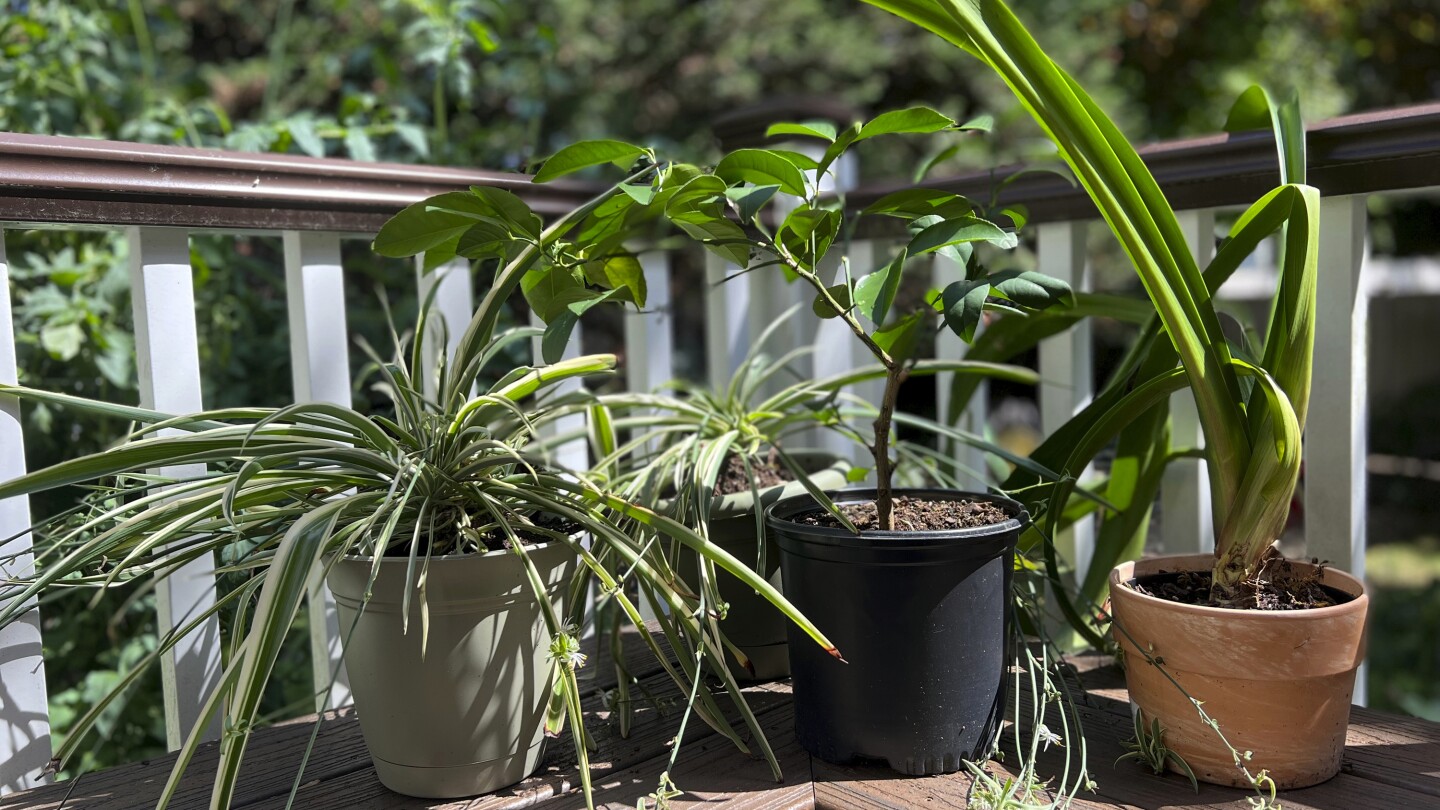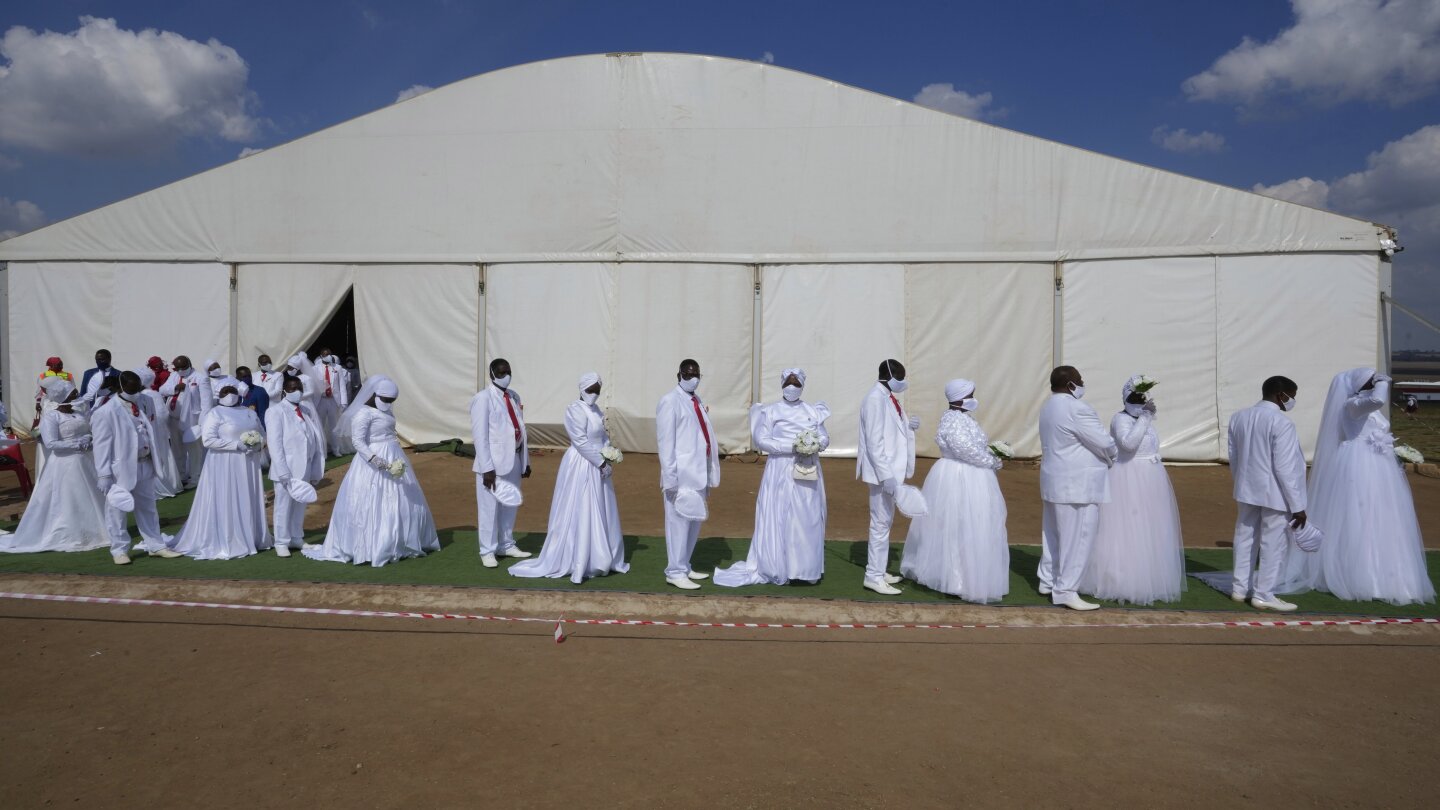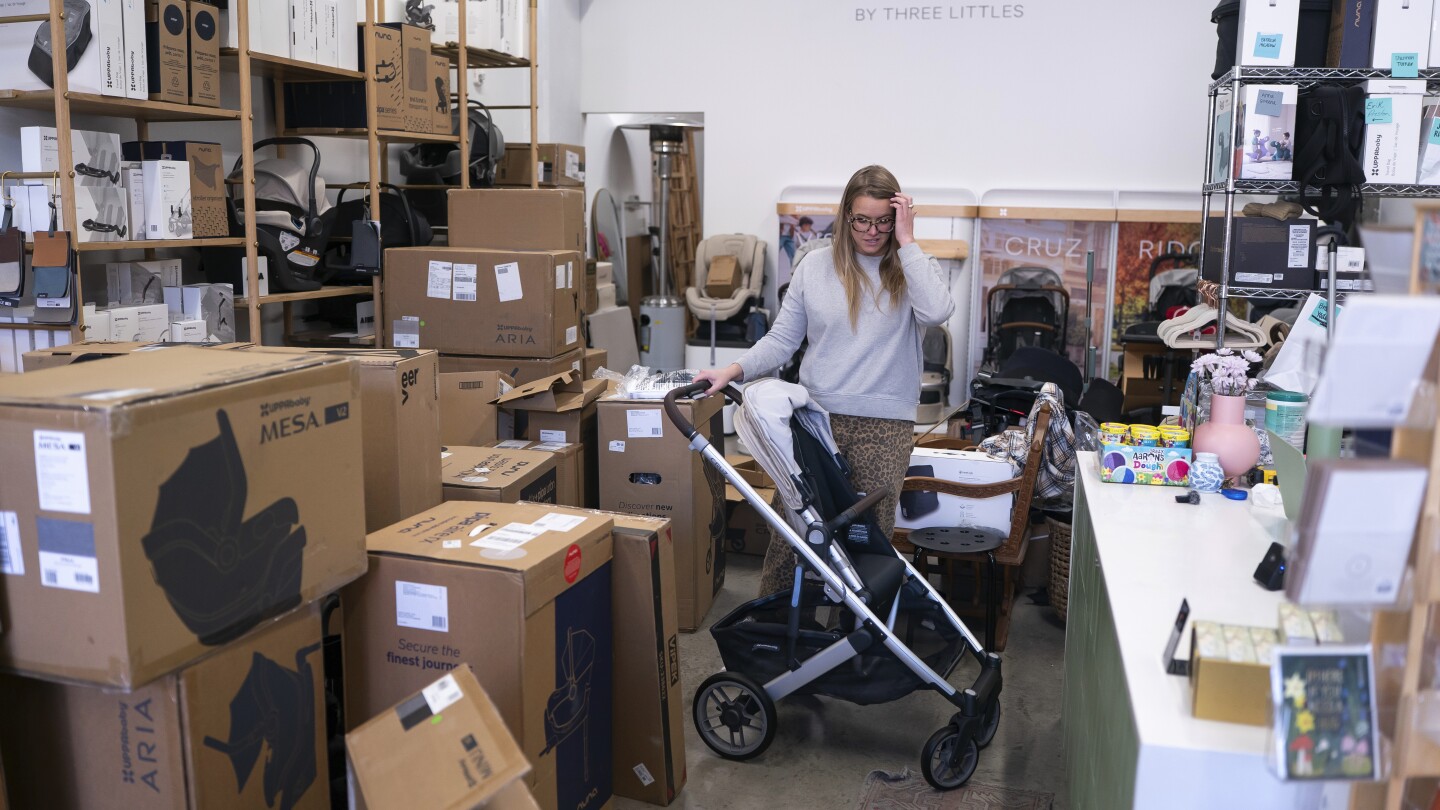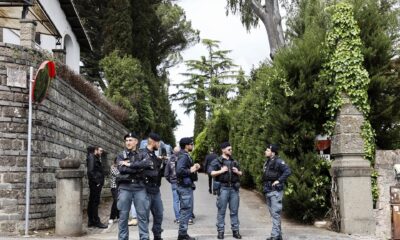Lifestyle
Acclimating houseplants to the outdoors can energize them

Most houseplants are tropical plants that require the warm, somewhat humid conditions of their natural habitat. In the home, many can become tired-looking, especially over winter, when even your brightest window provides lower-than-ideal light levels.
So why not send your houseplants on a vacation from which they’ll return re-energized, invigorated and having grown like, well, a weed?
First, slip plants out of their pots to ensure their roots aren’t crowded. If they are, loosen them gently and replant them in a container exactly 2 inches larger (no more, no less), then make a game plan.
Make sure the weather is right
Just as you might avoid visiting certain areas during extreme seasonal weather events, your plants’ summer vacation plans should also be carefully timed. Jumping the gun, such as setting them out on the first warm spring day, could be injurious or even fatal. Some tropical plants can suffer severe damage when temperatures drop to just 45 degrees Fahrenheit.
Wait until nighttime temperatures remain reliably above 60 degrees, then harden plants off by placing them in a shady outdoor spot (to avoid sunburn) for an hour or two. Then bring them back indoors. Repeat this daily over the course of a week, increasing their outdoor exposure by one hour each day. At the end of the week, they should be well acclimated to the stronger light, longer days and the wind of the great outdoors, where they can spend the summer.
Growing plants need nutrients
While on vacation outdoors, your plants will benefit from natural sunlight, rain showers that will cleanse their leaves and provide hydration, and breezes that will train them to stand stronger. They’ll also likely grow with reckless abandon.
All this added vigor means they’ll require the nutrients of a growing teenager. Apply a slow-release fertilizer according to package directions or a fast-release product diluted to half strength once every two weeks. Avoid fertilizing during heat waves or when plants are otherwise under stress; forced growth when they are struggling will only make them weaker.
Plants that would rather stay home
There are some plants, however, that are homebodies. Those with delicate, fuzzy or velvety foliage, such as African violets, should never be exposed to leaf-wetting rain, direct sunlight or wind.
Low-light houseplants such as Pothos, ZZ plant, Chinese evergreen, snake plant and cast iron plant can be placed outdoors, but only in a shady spot. Even there, they should be monitored for signs of sunburn or scorch and returned home if they display symptoms.
In late summer or early fall, when temperatures threaten to drop below 60 F in your garden, reverse the acclimation process by moving plants into the shade for incrementally longer periods each day for a week. Then, inspect them for insects and, for good measure, give them a hose shower before bringing them back home.
They’ll be happy campers.
___
Jessica Damiano writes weekly gardening columns for the AP and publishes the award-winning Weekly Dirt Newsletter. You can sign up here for weekly gardening tips and advice.
___
For more AP gardening stories, go to https://apnews.com/hub/gardening.
Lifestyle
A Pentecostal church in South Africa holds mass Easter weddings for 3,000 people, some polygamous

JOHANNESBURG (AP) — A Pentecostal church in South Africa celebrated Easter Sunday with mass wedding ceremonies for around 3,000 people, with many of them entering into polygamous marriages.
The International Pentecost Holiness Church said mass weddings are part of its Easter festivities and the tradition of polygamy, which is observed in some African cultures, has been incorporated into the church.
Sunday’s ceremonies would see some men marry their sixth or seventh wives, church spokesperson Vusi Ndala said. Other grooms were set to marry multiple brides at one time, Ndala said.
“Polygamy is not only embraced but held in high regard” in the church, Ndala said.
A man with his wife and two of his brides walk, during mass Easter weddings for 3,000 people, some polygamous, at the International Pentecost Holiness Church in Heidelberg, east of Johannesburg, South Africa, Sunday, April 20, 2025. (AP Photo/Themba Hadebe)
Couples dance as they enter the church building during mass Easter weddings for 3,000 people, some polygamous, at the International Pentecost Holiness Church, in Heidelberg, east of Johannesburg, South Africa, Sunday, April 20, 2025. (AP Photo/Themba Hadebe)
People queue during mass Easter weddings for 3,000 people, some polygamous, at the International Pentecost Holiness Church in Heidelberg, east of Johannesburg, South Africa, Sunday, April 20, 2025. (AP Photo/Themba Hadebe)
The International Pentecost Holiness Church was founded in South Africa in the early 1960s. It is an African-initiated church, meaning it was founded by Africans rather than foreign missionaries, and blends Pentecostal beliefs with local traditions.
The church has held mass weddings before, including in 2023 when around 400 couples or bridal parties tied the knot. It says this year’s event was its largest by far.
Ndala said the large number of people being married this year was because of “a large number of men marrying more than one wife at a go.”
In some cases, grooms brought their current wife or wives to be with them for their new marriage.
The weddings were held at the church’s headquarters, a huge, dome-shaped building in the town of Heidelberg, near Johannesburg, that can seat 60,000 people.
The congregants who were being married waited in long white tents set up in open fields next to the church building, where they were given bridal flowers, food packs and water. They then filed into the church building in long queues, the women wearing white bridal gowns and many of the men in matching white suits and red ties.
Polygamy is legal in South Africa if the union is registered as a customary marriage.
A man with his wife and two of his brides sits inside a marquee ahead of the mass Easter weddings for 3,000 people, some polygamous, at the International Pentecost Holiness Church in Heidelberg, east of Johannesburg, South Africa, Sunday, April 20, 2025. (AP Photo/Themba Hadebe)
A groom in a wheelchair is assisted by a fellow member whilst his two brides walk in front, during mass Easter weddings for 3,000 people, some polygamous, at The International Pentecost Holiness Church in Heidelberg, east of Johannesburg, South Africa, Sunday, April 20, 2025. (AP Photo/Themba Hadebe)
___
AP Africa news: https://apnews.com/hub/africa
Lifestyle
Queen Elizabeth II’s favorite dog breed race for glory in the UK’s Corgi Derby

LONDON (AP) — Some of the fastest canines on four very short legs have raced for glory in Scotland’s annual Corgi Derby.
The Musselburgh Racecourse Corgi Derby was first held in 2022 to mark Queen Elizabeth II’s 70 years on the throne. The late monarch was a devoted corgi fan who owned almost 30 of the breed over the decades, along with a few dorgis – a corgi-dachshund cross.
Four-year-old Juno beat a 16-strong field of dashing dogs dressed in bright sweaters over the 230-foot (70-meter) race on Saturday at the racecourse outside Edinburgh. She came from behind in the final stretch to beat last year’s winner, Rodney.
The winner and her owners, Alisdair Tew and Fran Brandon, were presented with a trophy and dog treats by tennis coach Judy Murray, mother of Scottish star Andy Murray.
Tew told the BBC that “we trained her for this last year but this year we just resorted to just letting her chasing things, particularly seagulls” on Edinburgh’s Portobello Beach.
“Juno is always ready for treats -– that is probably why she won,” he said.
Elizabeth’s love of corgis began in 1933 when her father, King George VI, brought home a Pembroke Welsh corgi they named Dookie
Corgis were often by Elizabeth’s side in the decades before her death in September 2022 — accompanying her on official tours, reportedly sleeping in their own room at Buckingham Palace and occasionally nipping the ankles of visitors or royal family members.
Three corgis even appeared alongside the queen as she climbed into James Bond’s waiting helicopter in the spoof video that opened the 2012 London Olympics.
Lifestyle
Tariffs are likely to make having a baby cost more

Sam Rutledge and his wife have a baby due in mid-July, so they thought they had a few more months to research and buy the gear they’ll need.
But President Donald Trump’s tariff announcement in early April turned the couple’s slow walk into a sprint. In the past few weeks, they’ve bought two strollers, a car seat, a nursery glider, a crib and a high chair. All of them are made overseas.
“These are all pretty expensive under normal conditions, but when it became clear tariffs were coming we decided to buy them in case they became prohibitively expensive,” said Rutledge, who is a high school physics teacher.
Raising a child in America has never been cheap. In the first year alone, it costs an average of $20,384, according to Baby Center, a parenting website. But tariffs – ranging from 10% for imports from most countries to 145% for imports from China — will make it many times more expensive for new parents.
An estimated 90% of the core baby care products and the parts that go into making baby paraphernalia – from bottles and diaper pails to strollers and car seats – are made in Asia, according to the Juvenile Products Manufacturers Association, a U.S. trade group. The vast majority come from China.
“Overseas manufacturing has been the norm in our industry for decades,” said Lisa Trofe, the association’s executive director.
It wasn’t always this way. When Munchkin Inc. CEO Steven Dunn founded his company in 1991, it made baby bottles in California with tooling from New Jersey. But over the years, the manufacturers he used shut down and the cost of doing business in the U.S. skyrocketed. Now, about 60% of Munchkin’s 500 products, from a $5 sippy cup to a $254 Night Owl Stroller with headlights, are made in China.
In response to the tariffs, Dunn halted orders from China and instituted a hiring freeze at Munchkin’s California headquarters, where 320 people are employed. Dunn expects Munchkin will run out of some products within three months.
“There is no possibility of being able to pass on those tariffs” to customers in the form of price increases, he said.
Dunn said he tried to reduce his dependence on China in recent years, shifting some manufacturing to Vietnam and Mexico. He also spent a year communicating with American manufacturers to see if one could make Munchkin’s new Flow Nipple Shield, which allows a breastfeeding mother to see if her milk is flowing. But most said they couldn’t make the complex silicone product, Dunn said. It’s now made in Vietnam.
“There’s not enough tool makers and manufacturing expertise and automation and skilled labor in the U.S. to make the thousands of products the juvenile industry needs,” Dunn said.
Multiple baby brands and companies contacted by The Associated Press didn’t respond or said they weren’t commenting on the tariffs, including Graco, Chicco, Britax, Nuna, Dorel Juvenile, UppaBaby, Evenflo and Bugaboo.
The Juvenile Products Manufacturers Association said it asked the Trump administration for a tariff exemption, arguing that baby products are essential for children’s well-being. Trump exempted some baby products, including car seats and high chairs, from import taxes during his first administration. But he hasn’t said whether he would consider doing so again.
The Associated Press left a message seeking comment with the White House.
Nurture&, a company that makes a popular nursery glider and other baby furniture, said it’s trying to be transparent about the impact of tariffs.
In a recent email, the company told customers it started lowering prices on some items when the tariffs hit. The company, which was founded in 2020, said it would keep those lower prices in place until April 30, but after that it may not be able to absorb the full cost of the import duties.
“These are large purchases, these are investments, and this is a very sensitive life stage,” Nurture& Chief Merchant Jill Gruys said. “We want people to make the best decision for their budget and their family.”
Elizabeth Mahon, the owner of Three Littles, a baby store in Washington, said she’s worried the tariffs will make essential products too expensive for some families.
Mahon volunteers twice per month at the Department of Motor Vehicles, where she teaches people how to buckle their kids safely into car seats. Some families still must be persuaded to use car seats, she said. Mahon fears higher prices would be another deterrent.
“No one is dying if they can’t buy a toy, but if they don’t have access to car seats, kids will get seriously injured,” she said.
At her own store, Mahon is getting notices that some manufacturers plan to introduce steep price increases in May. She feels lucky she could rent a storage facility and build up inventory ahead of the tariffs. For many small businesses, she said, the extra costs are “a death sentence.”
At The Little Seedling baby shop in Ann Arbor, Michigan, owner Molly Ging said she would normally be putting in Christmas orders at this time of year. Instead, she’s sorting through price increase notices from many of the vendors she works with.
“It’s a lot to manage, and I just have no idea how it’s going to play out,” she said.
Business is brisk right now, with customers hoping to beat tariff-related price increases. But Ging worries about her 13 employees – all moms who bring their kids to work – and about whether she can maintain enough inventory to meet future demand.
“Babies don’t stop being born because there’s tariffs,” she said.
-

 Middle East1 day ago
Middle East1 day agoIran says progress in nuclear talks with US, confirms third round next week | News
-

 Middle East2 days ago
Middle East2 days agoTunisian court hands opposition figures lengthy jail terms | Human Rights News
-
Lifestyle2 days ago
The 250th anniversary of the Battles of Lexington and Concord opens debate over US independence
-

 Europe1 day ago
Europe1 day agoRussia Ukraine truce: The real strategy behind Russia’s sudden truce announcement
-

 Europe1 day ago
Europe1 day agoLive updates: Trump news on Iran and Ukraine talks, immigration crackdown, tariffs
-
Asia1 day ago
Hong Kong’s oldest Democratic Party is shutting down as Beijing leaves no room for dissent
-
Middle East1 day ago
Israeli bombardment of Gaza kills 92 in two days: Health Ministry | Israel-Palestine conflict News
-

 Europe1 day ago
Europe1 day agoRussia sentences 19-year-old woman to nearly three years in a penal colony after poetic anti-war protest




